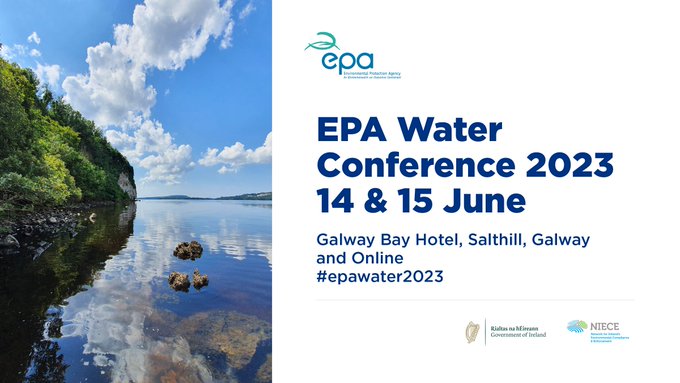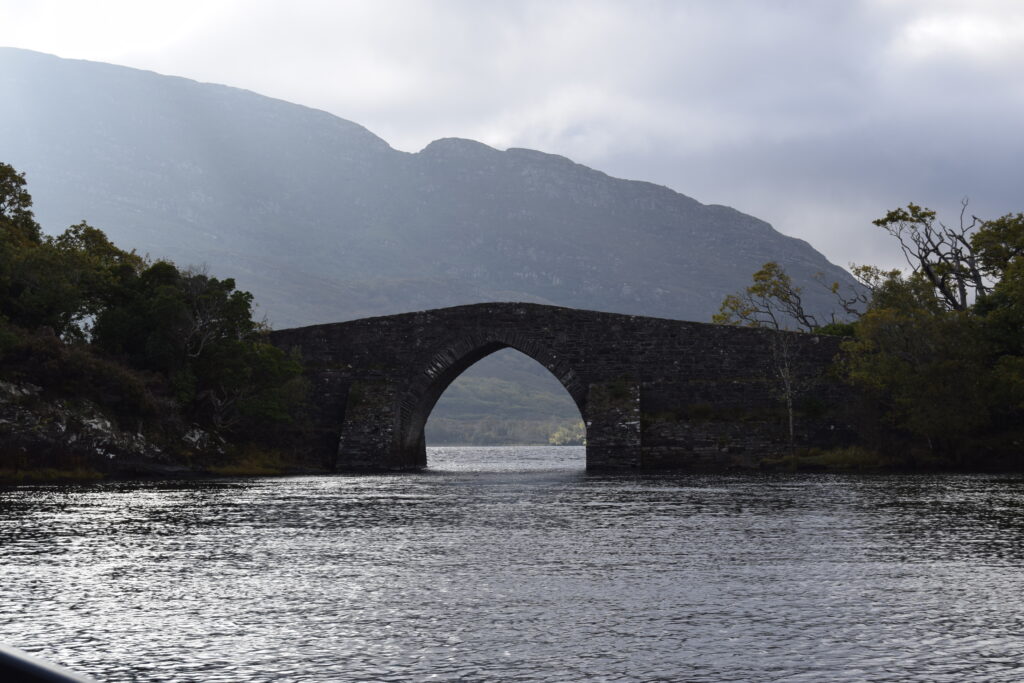
2023 EPA Water Conference
The EPA Water Conference was held on 14 and 15 June 2023 in Salthill, Galway. There were sessions on: Water quality and policy; Agriculture; Health, Water and emerging issues; The future of water.

2023 EPA Water Conference – Conference Programme
2023 EPA Water Conference – Videos
Session 1: Water Quality and Policy
| 1. Welcome and opening address | Dr Eimear Cotter Director, Office of Evidence and Assessment, EPA |
| 2. Ministerial address | Malcolm Noonan T.D. Minister of State for the Department of Housing, Local Government and Heritage |
| 3. Water quality indicators and the evidence base | Mary Gurrie Programme Manager, Office of Evidence and Assessment, EPA |
| 4. A stakeholder vision for water | Dr Matt Crowe Chairperson, An Fóram Uisce |
| 5. Development of catchment management plan templates | Dr Bernie White Regional Coordinator, Local Authority Waters Programme |
| 6. Local authority climate action plans: Our water future | Kevin Motherway Regional Coordinator for the Atlantic Seaboard South Climate Action Regional Office led by Cork County Council |
Session 2: Agriculture
Session 3: Health, Water and Emerging Issues
Session 4: The Future of Water
| 14. Ireland’s oceans and the impact of climate change on ecosystems | Dr Caroline Cusack Ocean Observation Team Leader, Marine Institute |
| 15. Investing for the future in a changing climate | Maria O’Dwyer Head of Asset Management, Uisce Éireann |
| 16. Learnings and recommendations from the Citizens’ Assembly on Biodiversity Loss | Dr Aoibhinn Ní Shuilleabháin Chairperson, Citizens’ Assembly on Biodiversity Loss |
| 17. Closing conference address | Dr Eimear Cotter Director, Office of Evidence and Assessment, EPA |

Who is involved?
Quite simply, everyone in Ireland has a role to play. This can be from something as simple as making sure you don’t pollute your local stream, or a local community working together to establish a Rivers Trust to enhance the rivers and lakes in their area, to a Government Department or Agency helping a Minister implement a new policy to help protect and enhance all our water bodies.
This website has been developed and is maintained by the Environmental Protection Agency, and is a collaboration between the Department of Housing, Planning and Local Government, the Environmental Protection Agency, and the Local Authority Waters Programme.

Local Authority Waters Programme
The Local Authority Waters Programme coordinates the efforts of local authorities and other public bodies in the implementation of the River Basin Management Plan, and supports local community and stakeholder involvement in managing our natural waters, for everyone’s benefit.

Environmental Protection Agency
The EPA is responsible for coordinating the monitoring, assessment and reporting on the status of our 4,842 water bodies, looking at trends and changes, determining which waterbodies are at risk and what could be causing this, and drafting environmental objectives for each.

Department of Housing, Local Government and Heritage
The Department is responsible for making sure that the right policies, regulations and resources are in place to implement the Water Framework Directive, and developing a River Basin Management Plan and Programme of Measures to protect and restore our waters.
